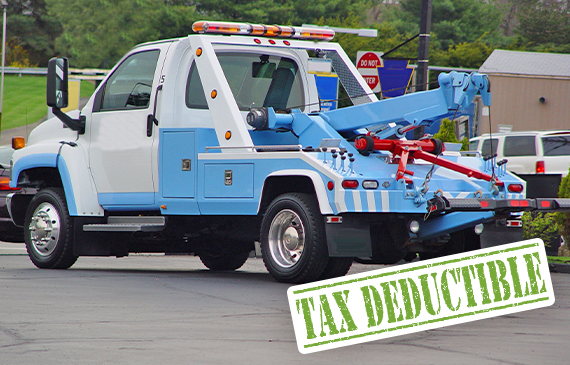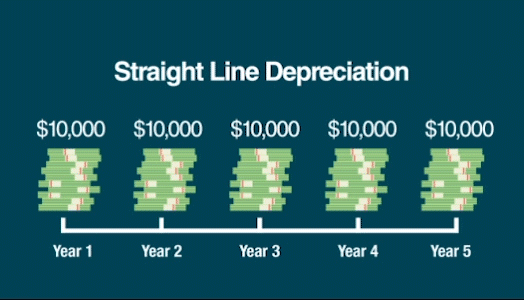Awareness matters, and you’d be surprised how often businesses overlook tax-saving opportunities. More and more businesses need to know that they don’t have to purchase equipment with cash to get potential tax savings. The best thing businesses can do is conserve their cash and then reap the tax benefits.
Leasing and financing equipment is the best way to support growth and run operations. Besides, there is no need for small and medium-sized businesses to make large purchases outright that can impact their optimized and stale flow of operations.
The next time you hear about small business write-offs in 2023, understand that equipment financing and leasing is leading the charts. In fact, eligible businesses should leverage equipment leasing and financing. It is arguably the most practical and cost-effective way to get your hands on new equipment without spending a significant chunk of money all at once.
In this article...
- What Makes Up Equipment Financing and Leasing?
- Two Types of Leases to Save On Income Taxes
- Equipment Leasing and Financing: What are the Potential Tax Benefits?
- Beacon Funding: Drive Growth for Your Business by Getting the Equipment Financing You Need and Deserve!
In this article, you’ll learn about how you can leverage equipment financing and leasing to acquire a piece of equipment and how it allows you to save up on taxes.
What Makes Up Equipment Financing and Leasing?
Equipment leasing refers to when you rent out a piece of equipment from a reputable equipment financing company. But you can also rent the same equipment from an equipment financing vendor or lender. In any case, once the lease is complete, you return the rented equipment.
In some instances, you can buy the rented equipment at an agreed-upon price or market value after the lease is over. On the other hand, equipment financing is when you buy a piece of equipment rather than rent it. Equipment financing works like taking out a specific business loan.

The equipment itself is collateral on the loan, and in case of a default, the lender or vendor can decide to seize it. Now, after you pay off your loan amount, you become the legal owner of the equipment. Conversely, in leasing, ownership is intact with the lender. And once the terms and conditions of the lease expire, you lose direct access to the rented equipment.
Leasing equipment makes sense if you just want to utilize it for 2-3 days. Similarly, if you don’t have enough cash to cover the down payment, leasing is a better choice than financing. But if you plan to use the equipment for a long time, then lean toward equipment financing for long-term operational security.
Two Types of Leases to Save On Income Taxes
If you want to save up on your taxes, focus on this simplified overview of the two leases:
Capital Lease
A capital lease works as a contract that allows the renter to use a piece of equipment temporarily. In this type of lease, the economic attributes of owning equipment are highlighted. A capital lease comes into play when you purchase a fixed asset.
On the other hand, an operating lease works as a true lease as per GAAP or generally accepted accounting principles. In a capital lease, the asset leased gets treated for specific accounting purposes. And unlike a capital lease, an operating lease doesn’t offer ownership of the rights to the asset and gets different treatment based on accounting terms.
So, if you get a capital lease, you can decide to claim the depreciation throughout the functional life of a fixed asset. If you want to make the most out of a capital lease, make sure to talk to a tax expert so that you can speed up your tax deductions through Section 179.
This allows you to write off your entire original purchase price in the same tax year as your purchase and cuts out the need to split the purchase price over the years.
Operating Lease
An operating lease refers to a contract that makes it possible for a business owner to use an asset without ownership rights. Operating leases have made it easier for different types of businesses to use a fixed asset without having to deal with high purchase costs.
The lessee, the business that decides to lease a fixed asset, is usually aware of its perks and limitations. In an operating lease, each party has a set of shared and agreed-upon responsibilities that are highlighted in the lease contract. Typically, the burden of responsibility falls on the lessee to maintain the leased asset and make sure it is in proper condition and without wear and tear.
In a finance lease contract, businesses get the permit to utilize a fixed asset to ensure ownership transfer once the lease term is complete. However, the lessor needs to fulfill all the contractual obligations. At its core, an operating lease contract is ideal for a business that wants to use a fixed asset and then return it to the lessor in proper condition.
This type of lease works in favor of the lessee and doesn’t require paying for an expensive piece of equipment. Typically, an operating lease is written with a fixed purchase price or fair market value. On average, it’s 10% of the total equipment cost.
The lessor is the one that has ownership of the equipment, which means businesses cannot straight up claim depreciation. But an operating lease acts as a rental expense, which is eligible for tax incentives. It means businesses can write off all their lease payments.
Equipment Leasing and Financing: What are the Potential Tax Benefits?
Equipment lease tax deduction is a thing, and you want to be at the forefront to maximize your benefits. The tax benefits attached to getting new equipment depend on whether you lease or finance it. In fact, it also impacts your payments, like whether you want to make periodic payments or cover the amount upfront.
In retrospect, whether it’s financing or leasing equipment payments, they are tax-deductible. Typically, expenses work as dedications and offer tax relief throughout the lease term, and allow businesses to reduce their tax bill.

Despite the type of equipment you acquire, once you get it – you can count on tax deductions throughout its functional life. Businesses can also reap the reap tax perks sooner, and all it takes is to utilize the Section 179 tax deduction.
Why Opt for Accelerated Tax Perks?
Ordinarily, when you want to get tax deductions on an acquired piece of equipment, they are realized throughout its functional life. Ultimately, you write off part of an original purchase price a year and distribute your tax deduction over a series of increments for a couple of years.
But when it comes to Section 179, you can deduct part or the entire original purchase price of the acquired equipment in the same year. So, instead of deducting incremental payments from the total equipment cost for years, you can get the tax benefit within the same year.

The idea is to minimize your taxable income significantly and effectively, and in the same year as you bought the equipment. In the case of a true tax lease, you can deduct your monthly payments throughout the lease life.
All smart business owners should take advantage of tax breaks. So, the next time you opt for equipment financing, understand that there is no need to make monthly payments. However, the interest you pay every month works as a tax deduction for equipment-related loans.
As per Section 179, the maximum tax deduction is $1,000,000 on the total cost of used or new equipment acquired. In this context, you can get savings from the bonus depreciation, which makes it possible for you to get additional depreciation on used or new equipment you acquire. However, remember that bonus depreciation will no longer be in effect after January 2027.
Importance of Consulting with a Professional Tax Expert
When it comes to equipment financing and leasing, it can make a huge difference to reach out to a professional and experienced tax expert. If you plan to utilize Section 179, then it is much better to depend on a tax consultant or CPA before you buy the equipment. This is the best approach to break down the details and find out what may or may not work best for your company.
Calculate Potential Tax Savings
You don’t have to dive into technical and complex calculations to find out your potential tax savings. Instead, download Beacon Funding’s dedicated mobile app to calculate how much you can get in tax deductions on equipment.


Equipment financing allows you to grow your business, and Beacon Funding is the fastest and easiest way to make it happen. Want to finance specific equipment? Apply now and get a response from our expert financing consultant in 24 hours.
APPLY NOW
Beacon Funding: Drive Growth for Your Business by Getting the Equipment Financing You Need and Deserve!
With Beacon Funding, equipment financing is easier than ever. While you probably would consider finance, operational, and ownership costs, equipment financing has become the best way for businesses to get and use required equipment for years without having to worry about lease terms.
As long as you have a great financial position and credit history, you can file your equipment financing application and expect to hear from a financing company in no time. In fact, Beacon Funding engages with successful applicants within a day. Make sure to communicate with a Senior Financing Consultant to discuss your eligibility and suitable financing options.
SCHEDULE A MEETING NOW
With Beacon Funding, you can count on a simple, easy, and flexible equipment financing process. Whether you run large-scale complex operations or small operations, Beacon Funding reviews applications objectively and facilitates businesses that need equipment financing to transform their business operations.